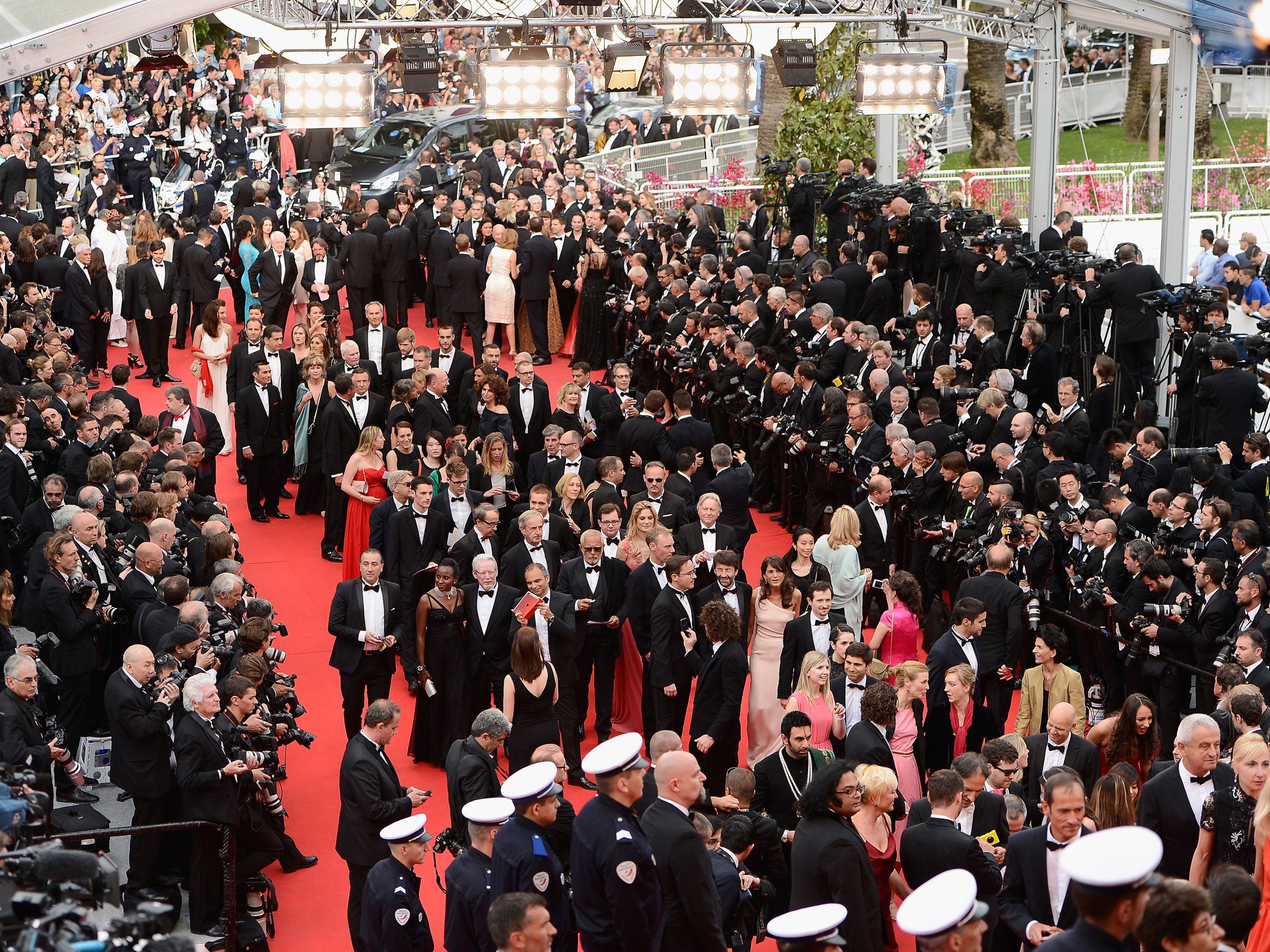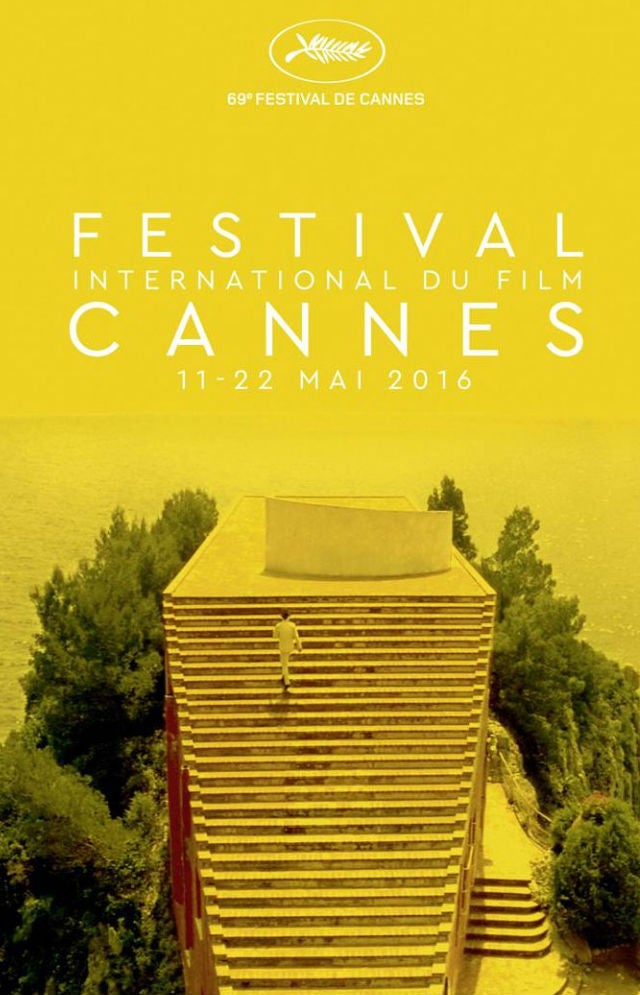Cannes 2016: Date, main contenders and the story behind the Palme d’Or – everything you need to know
Because for non-film buffs it can all seem rather baffling

The Cannes Film Festival kicks off on 11 May with Mad Max’s George Miller heading up the jury. But amid all the glitz, glamour and furores over high heels, non-film buffs will be wondering why it's all such a big deal.
Read more of our Cannes 2016 coverage
So for those who know that the extravaganza involves movies, but not much else, allow us to answer some of your most burning questions.
Where is Cannes?
Cannes is a city located on the French Riviera in the South of France. It is a luxurious place known for attracting the rich and famous with the festival itself taking place at the Palais des Festivals et des Congres.
When is the festival held?
The festival is an annual event, with the 69th running from 11 to 22 May this year. You can only attend if you are invited, so anyone wanting to make like Marilyn will need to start working on their film industry kudos.
What is the point of the festival?
Described as a “celebration of cinematographic art” on its website, Cannes previews new films and documentaries from a range of genres across the world and is renowned as one of the most prestigious film festivals.
Some of the coming year’s biggest movies receive their premieres at Cannes and many go on to triumph come awards season. Inside Out, Mad Max: Fury Road, Amy and Son of Saul all debuted at Cannes in 2015 with the latter winning the Grand Prix.
When did Cannes begin?
Jean Zay, French Minister of National Education, created the film festival in the Thirties in a bid to rival the Venice Film Festival in the international cultural event stakes. The Festival du Film de Cannes eventually launched after the war in September 1946, with sixteen countries presenting films, and has been held every year since except 1948 and 1950.
What is the Palme d’Or and why is it such a big deal?
The Palme d’Or (Golden Palm) was created in 1955 to replace the Grand Prix du Festival (the Grand Prize). It is the highest accolade up for grabs at the festival. There are two Palme d’Ors awarded each year - one for feature film and another for best short film - but when people refer to the prize, they usually mean the former.
The Palme d’Or is presented in a case of blue Moroccan leather with a white suede lining. The palm itself is made of 24-carat gold, hand cast into a wax mould and laid on a cushion of cut crystal.
What film will open the festival?
Woody Allen’s Cafe Society starring Jesse Eisenberg, Kristen Stewart and Blake Lively, will open the festival out of competition.
Who are the main contenders this year?
The In Competition category includes a varied list of films from notable British, American and international directors. It includes the new films from Andrea Arnold (American Honey), Pedro Almodóvar (Julieta), Nicolas Winding Refn (The Neon Demon) and the Dardenne Brothers (La Fille Inconnue). Jim Jarmusch's Paterson, Ken Loach's I, Daniel Blake and Loving, the next film from Midnight Special director Jeff Nichols are also ones to watch.
What major hits have won the top prize in the past?
Jacques Audiard’s Dheepan won the Palme d’Or last year, with Nuri Bilge Ceylan’s Turkish drama Winter Sleep winning in 2014 and Blue is the Warmest Colour triumphing in 2013. Further back, Michael Moore’s controversial documentary Fahrenheit 9/11 took it in 2004, Roman Polanski’s The Pianist was crowned victor in 2002 and Quentin Tarantino had a hit with Pulp Fiction in 1994. Then there was the Coen Brothers’ Barton Fink in 1991 and Martin Scorsese’s Taxi Driver in 1976. David Lean’s Brief Encounter won the Grand Prix in 1946 and the first ever winner was Cecil B DeMille with Union Pacific.
What are the awards categories?
The Official Selection is the festival’s main event and could be called ‘the line-up’. This is divided into the following categories:
Competition – 20 films in the running for the Palme d’Or, shown in the main Theatre Lumiere.
Un Certain Regard – 20 films chosen from around the world that often display debuts and experimental techniques
Out of Competition – Films that do not compete for the Palme d’Or due to not fitting the criteria, but the committee wants to recognise
Special Screenings – Films shown in a specially-adapted environment, chosen by the committee
Cinefondation – Shots and medium-lengths exclusively from film students worldwide
Short Films – These compete for the Short Film Palme d’Or
Is there specific criteria?
Films for Competition, Out of Competition and Un Certain Regard must have been produced in the 12 months prior to the festival. They cannot have been presented internationally in any way, including at any international film festivals or online.
Films must also comply with this official rule: “The spirit of the Festival de Cannes is one of friendship and universal co-operation. Its aim is to reveal and focus attention on works of quality in order to contribute to the progress of the motion picture arts and to encourage the development of the film industry throughout the world.” Feature films can be as long as they like but short films must be 15 minutes max.

Who judges the submissions?
Thousands of films are submitted to Cannes each year and a selection committee watches every single one. The entries are cut down to make the Official Selection. There are two main juries: one for feature films and another for short films and Cinefondation. Un Certain Regard and the Camera d’Or (best first-time film) are also chosen by juries.
There is a jury president, with Australian director George Miller taking the role shared between Joel and Ethan Coen last year. Judges vote by secret ballot and the majority wins. Jurors are invited by the selection committee and are all people in the film industry, usually directors and actors. No juror can have a film in competition.
Interestingly, juries have the freedom to create awards depending on the movies in competition. Samuel L Jackson was the first to win a best supporting actor prize for Spike Lee’s Jungle Fever in 1991, for example.
What’s the story behind the 2016 poster?
This year’s poster is inspired by stills from Jean-Luc Godard’s 1963 film industry satire Contempt. It shows a man climbing a staircase overlooking the Mediterranean sea while bathed in a heavenly gold light. The poster was designed by Herve Chigioni and Gilles Frappier, with festival organisers claiming it “reiterates the founding commitment of Cannes to pay tribute to the history of film and to welcome new ways of creating and seeing”.
Join our commenting forum
Join thought-provoking conversations, follow other Independent readers and see their replies
0Comments